Fact-check: Can paw paw seeds ward off malaria? No, scientifically unproven
Writer: Jibi Moses
A Facebook post by Mr. Chia, a page that concentrates on foods and nutrition claimed on 14th October 2022 that Papaya seeds are a medication for Malaria.
The post that has since attracted 13 reactions, 3 comments and 2 shares carries a picture of a ripe pawpaw with the caption ‘ward off malaria with paw paw seeds’.
The post further claims that the paw paw seeds have more health benefits as in being a powerful antioxidant, relieves menstrual pain, healthy gut, helps in weight loss, anti-cancer properties, and nephroprotective.
A screenshot of the image used by Mr. Chia.
But, how do paw paw seeds ward off malaria? 211 Check looks at the claim:
The Facebook page, Mr. Chia mostly posts about foods and associated health benefits, and attributes a single food type to be medicinal too many diseases for example, in this case, it named malaria, cancer, healthy gut, reduces on menstrual pain, and protects the kidneys. In another post they wrote on sugarcane, explaining similar benefits.
However, there’s no clear dosage for the patient who is taking the medication in the page’s posts.
211 Check spoke to a medical doctor in Juba, Dr.Gwolo David of Juba Medicare clinic, enquiring whether papaya seeds can help prevent and cure malaria, but he said there’s no proven way that papaya seeds can help prevent or cure malaria though studies have shown its inhibitory effects on Plasmodium falciparum (malaria).
He said papaya, just like any fruit, is nutritional and he advises people to always have them in their diet, but they shouldn’t be eating them as medication. He further advised people to always visit a medical personnel when not feeling okay and take medication as advised by the physician.
Dr.Odol George, a Juba-based physician, had an answer not different from that of Dr.David.
“What is known is that fruits are good for health because they contain a lot of vitamins which will improve body immunity and have antioxidant elements like Vitamin E and Zinc,” he said.
Efforts to get a comment from the National Drug Authority were futile, as they couldn’t reply to our email.
What is Papaya?
According to Wikipedia papaya or pawpaw is the plant Carica papaya, one of the 22 accepted species in the genus Carica family Caricaceae. It was first domesticated in Mesoamerica, within modern day southern Mexico and Central America. In 2020 India produced 43% of the world supply of papaya.
An Internet based nutritional WebMD explains how beneficial papaya is to one’s health. Similarly other sites explains in their different as seen here, here, here and here
An image of a sliced ripe papaya (pawpaw) fruit.
Malaria causes symptoms, prevention and treatment
Malaria is spread by a female anopheles mosquito. Most common signs of malaria are fever, headache, joint pains and others. Malaria can be mild to deadly extent if not treated early enough. There many medicines that treat Malaria according to the way an individual responds to the parasites.
The Center for Diseases control explains more about Malaria, its causes, symptoms and treatment in this post. World Health Organization, the body that regulates and coordinates health issues in the world has this to say about malaria
Malaria is treated with a variety of medicines some of which are Chloroquine, Doxycycline, and Primaquine.
These health establishments give a better and more explanation on the types of medicines used for treating Malaria and these are: CDC, MedicineNet, and drugs.com.
Conclusion:
Given the findings after the comments from the medical doctors and reliable online sources, there’s on prove that papaya seeds are a medication for either malaria or the other said ailments.
The online nutritional sites which are somehow in support of the claim, warn that patients should first seek advice from a medical Doctor or a physician should they catch malaria.
This fact check was published by 211 Check with support from Code for Africa’s PesaCheck and the African Fact-Checking Alliance.


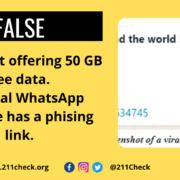
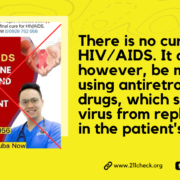
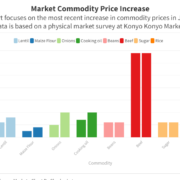
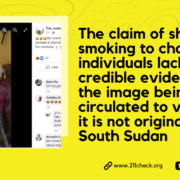
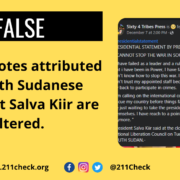



Leave a Reply
Want to join the discussion?Feel free to contribute!